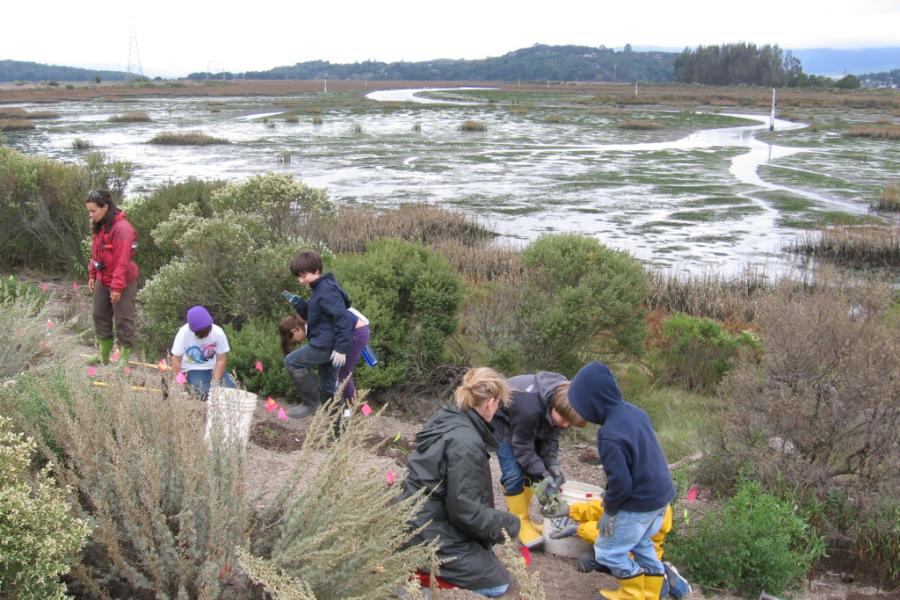Restoring wetland-upland transition zone habitat in the North Bay with STRAW

$2,661,264
San Pablo Bay National Wildlife Refuge in Sonoma, Solano, and Napa Counties; Pickleweed Park in San Rafael in Marin County; Shollenberger Park and McNear’s Landing in Petaluma in Sonoma County; North Region
Design; Construction/Implementation; Maintenance; Monitoring
Vital Fish, Bird and Wildlife Habitat Program
San Pablo Bay National Wildlife Refuge, Sonoma Land Trust, Marin County Dept of Public Works, Marin County Stormwater Pollution Prevention Program, SF Bay Joint Venture, Sonoma County Water Agency, Federated Indians of the Graton Rancheria, Friends of the Petaluma River, Petaluma Wetlands Alliance, Sonoma Resource Conservation District
2024 Update: The project has completed planting at all sites and is complete.
***
This funds Point Blue Conservation Science to restore approximately 1.3 linear miles of critical wetland-upland transition zone habitat in the North Bay, engaging over 5,000 STRAW (Students and Teachers Restoring a Watershed) participants at four sites over the course of five years.
The project will consist of design, implementation, maintenance and monitoring of climate-smart marsh (and newly restored marshes which are typically mudflats) to upland transition zone habitat restoration in four locations in Marin, Sonoma, and Solano Counties, while educating and building a constituency of environmental supporters. The project will: (1) cast teachers, students and their families as ecological stakeholders—engaging them actively in the improvement of natural areas in their community, (2) increase resiliency of marsh transition zone habitat through critical restoration work, and (3) ensure long-term restoration success through monitoring and maintenance.
